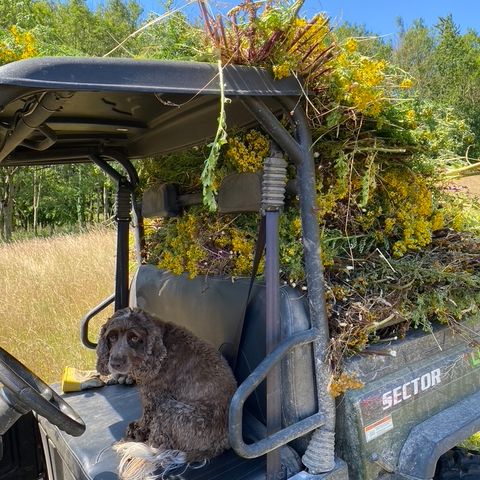U.S. organic agriculture: is 3% annual growth enough?

Scarica e ascolta ovunque
Scarica i tuoi episodi preferiti e goditi l'ascolto, ovunque tu sia! Iscriviti o accedi ora per ascoltare offline.
Descrizione
This week’s episode is about the U.S. organic agriculture market and industry. In this episode, I talked to Ryan Koory, Vice President of Economics at the U.S. organic agriculture analytics...
mostra di piùOrganic agriculture is a long-established but minority segment of the global food industry. In this episode I wanted to understand recent market trends, focusing on the U.S. grains and oilseeds market – both compared with conventional markets, and considering market havoc since Russia’s invasion of Ukraine – both massive grain producers.
As a non-expert, I found it very interesting to hear how U.S. organic market data infrastructure isn’t there yet, compared with conventional agriculture. For example, the latest official USDA data for organic acreage is 2019/2020. Similarly, trade data are limited to a handful of organic commodities, according to the assignment of trade codes – for example organic corn and organic wheat, but little else.
Next, we talked about prices. It turns out that organic and conventional agricultural commodities are so decoupled that it doesn’t make sense to talk about the price difference between them – ie the organic premium - from a market perspective of drivers. Nevertheless, for sure, there is a big premium. Let’s say for U.S. organic milling wheat, which is selling for $19-24/bushel, versus what appears to be around $8/ bushel for conventional wheat.
Regarding the growth in U.S. organic acreage – Ryan reckoned this is growing, around 3% on average year on year, but there’s more to simply the price difference that is driving that. And there are risks, related to hedging tools, crop insurance and the three-year transition.
Finally, we touched on some more blue-sky issues, first, around the prospect for other sustainable food labels, for example connected with regen agriculture, and second, the place of the organic label in a world increasingly preoccupied with low-carbon production and net zero.
Enjoy!
Informazioni
| Autore | Gerard Wynn |
| Organizzazione | Gerard Wynn |
| Sito | - |
| Tag |
Copyright 2024 - Spreaker Inc. an iHeartMedia Company
